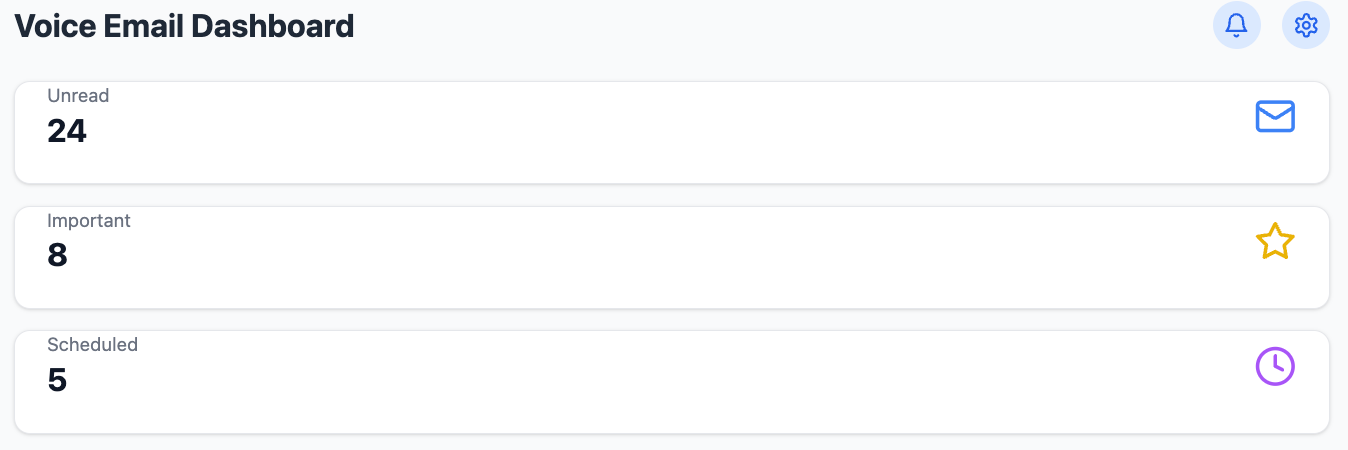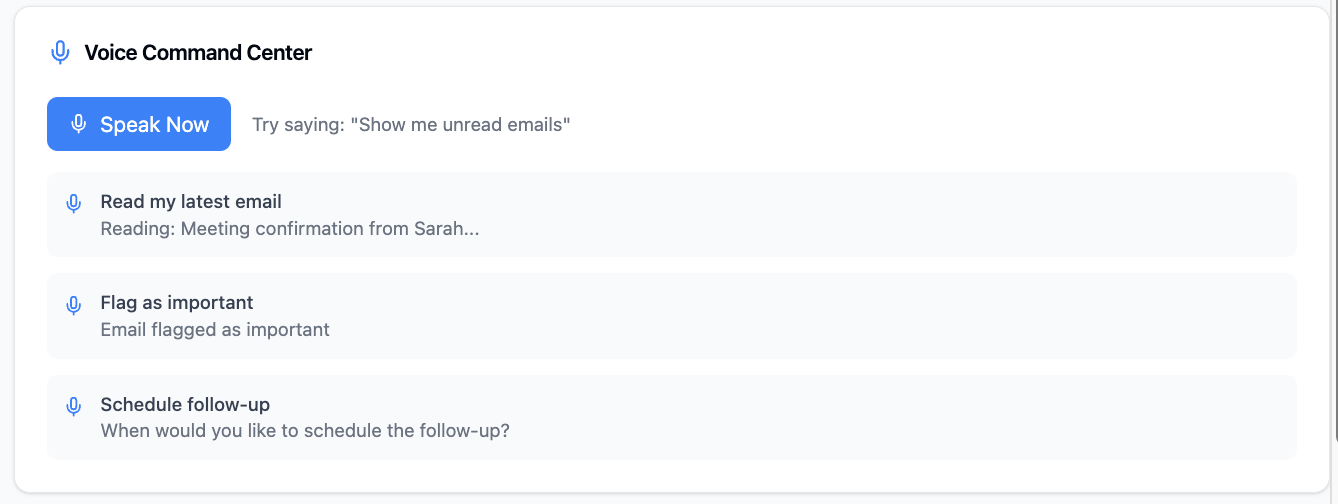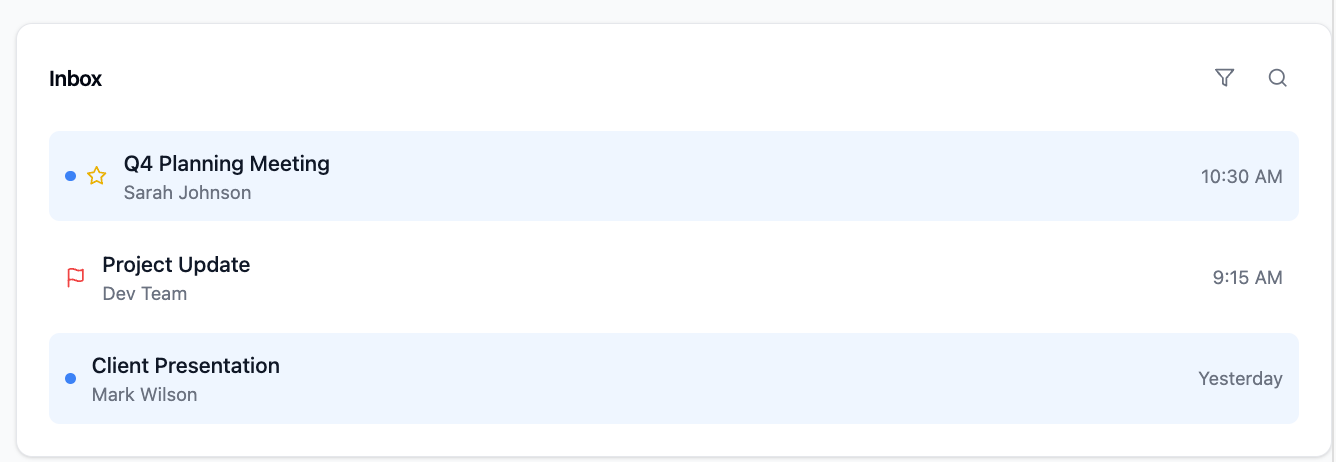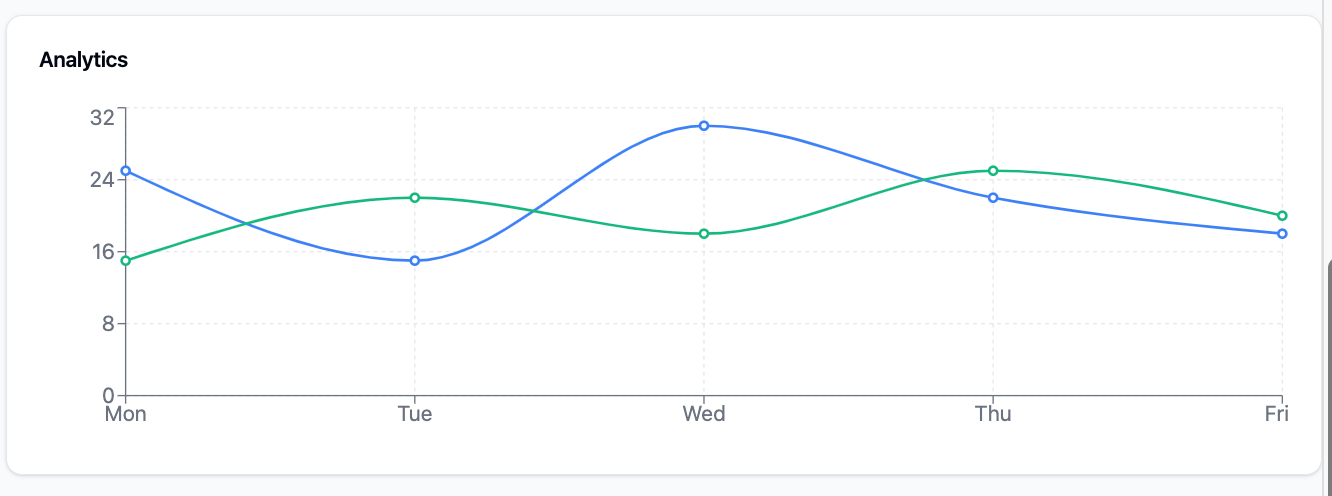Create a Voice-Enabled Email Client with Vapi AI: Changing Email
Email is a cornerstone of modern communication but we are changing how we interact with our inboxes. By using Vapi AI’s voice recognition and integrating an AI voice assistant, we can build email clients that change how users manage their communications, making email more accessible, faster, and more fun than ever before.
Introduction to Voice-Enabled Email Clients
Voice-enabled email clients are revolutionizing the way we interact with our emails. With the integration of AI voice assistants, users can now manage their emails hands-free, making it easier to stay organized and productive. Additionally, Vapi AI can capture the caller’s number as part of the metadata during customer interactions, ensuring that all relevant information is available for processing. These advanced systems leverage natural language processing (NLP) to understand and execute voice commands, allowing users to compose, send, and manage emails with ease. Imagine dictating an email while on the go or sorting through your inbox without lifting a finger. This technology has the potential to transform the way we work and communicate, making it an essential tool for businesses and individuals alike.

Introduction to Vapi AI and Voice Assistants
Vapi AI is a cutting-edge platform that empowers businesses to build, test, and deploy interactive voice agents quickly. With Vapi AI, companies can create their own AI voice assistants that can understand natural language, process customer interactions, and provide personalized responses. This technology has revolutionized the way businesses communicate with their customers, enabling them to automate workflows, improve customer satisfaction, and reduce operational costs. By leveraging advanced natural language processing, Vapi AI ensures that voice assistants can handle complex queries and provide accurate, context-aware responses, making customer interactions more efficient and effective.
Changing Email Communication
The traditional way of managing email involves a lot of typing, clicking, and navigating through interfaces. Vapi AI is changing that by introducing voice commands as the primary way of interaction. This saves time and opens up new ways of interacting with our email communications.
Additionally, Vapi AI can automate tasks to streamline business operations, integrating with tools like Zapier to help beginners effectively manage various processes.

Natural Language Processing: Making Email Human
At the heart of Vapi AI is our Natural Language Processing. This technology allows users to interact with their email naturally. No more remembering commands or navigating through menus. Users can simply speak their intentions. Whether it’s composing a new message, searching for an email, or organizing their inbox, the system understands and executes commands with great accuracy. Defining system prompts helps in capturing relevant information for better email management, ensuring that users receive accurate and timely responses.
Accessibility: Breaking Down Barriers
One of the biggest advantages of a voice-enabled email client is that it can make email more accessible to everyone. For people with visual impairments, physical disabilities, or those who just struggle with traditional interfaces, voice commands are a more natural and accessible way to manage their communications. This isn’t just about compliance – it’s about everyone being able to participate in digital communication. Additionally, voice-enabled email clients can enhance the customer experience by providing more accessible communication options.
Productivity Through AI Voice Assistant Commands
Managing email through voice commands opens up many opportunities for productivity. Users can process their inboxes while walking between meetings, organize emails while reviewing documents, or compose responses during their commute. This multitasking can save time spent explicitly managing email and allow users to focus on actual work. A software engineer plays a crucial role in developing these voice-enabled email clients, enhancing productivity through their expertise in creating high-performance applications.

Personalization and Engagement
Voice interaction adds a personal touch to email communication. Users can add more personality to their messages through tone and inflection and create more engaging and subtle communications. For marketing campaigns, this personalization can lead to higher engagement rates and better communication with customers.
Enterprise
Corporate
In enterprise, voice-enabled email is a productivity tool. Executives and managers can process their inboxes between meetings, compose thoughtful responses while reviewing documents, and stay productive without being tied to their keyboards. The system can understand context and intent so even complex email management tasks can be done through simple voice commands.
Customer Support
For customer support teams fast response times are key. A voice-enabled email client allows support staff to handle customer inquiries faster, potentially while accessing other resources or systems. Capturing the caller’s number can further improve efficiency by allowing support staff to quickly retrieve the caller’s information and history. Being able to dictate responses while looking up information can save time and improve service quality.
Marketing and Engagement
Marketing professionals can use voice to create more engaging email campaigns. From personalizing voice messages to creating voice response elements within emails, the technology opens up new ways to connect with your audience. Including relevant details like the email subject in notifications is crucial to streamline communication and ensure emails are correctly aggregated and formatted. These innovative approaches can make your marketing messages stand out in crowded inboxes.
Remote Work
With the rise of remote work, we are more reliant on email communication. Voice-enabled email clients can help remote workers manage their communications better, especially when juggling multiple tasks or working in nontraditional environments. Being able to process email through voice commands while managing other aspects of remote work can improve productivity and work-life balance.
Building an AI Voice Assistant with Vapi
Building an AI voice assistant with Vapi involves several steps. First, you need to define the system prompts that will guide the conversation between the customer and the voice assistant. These prompts should be clear, concise, and relevant to the customer’s needs. Next, you need to design the conversation flow, which includes the questions and responses that the voice assistant will use to interact with the customer. Finally, you need to integrate the voice assistant with your existing systems, such as your CRM or email client, to enable seamless data exchange and automation. This integration allows the voice assistant to access and utilize structured data, ensuring that customer interactions are smooth and personalized.

Designing Effective System Prompts for Voice-Enabled Email
Designing effective system prompts for voice-enabled email requires careful consideration of the customer’s needs and preferences. The prompts should be clear, concise, and relevant to the customer’s email subject. For example, if the customer is inquiring about a product, the prompt should ask for specific information about the product, such as its name, description, or price. The prompts should also be structured in a way that allows the voice assistant to extract relevant information from the customer’s response. This can be achieved by using natural language processing (NLP) techniques, such as entity recognition and intent detection. By designing prompts that are intuitive and context-aware, businesses can ensure that their voice-enabled email clients provide accurate and helpful responses.
Integrating Vapi AI with Email Clients
Integrating Vapi AI with email clients enables businesses to automate workflows and improve customer satisfaction. With Vapi AI, businesses can create voice-enabled email clients that can understand natural language and process customer interactions. The integration involves connecting the Vapi AI platform to the email client’s API, which allows for seamless data exchange and automation. For example, when a customer sends an email to the business, the Vapi AI platform can extract relevant information from the email subject and body, and use it to generate a personalized response. This not only streamlines communication but also ensures that customers receive timely and accurate information, enhancing their overall experience.
Technical Requirements for Voice-Enabled Email Clients
The technical requirements for voice-enabled email clients include a robust automation platform, such as Vapi AI, that can integrate with the email client’s API. The platform should also have natural language processing (NLP) capabilities, such as entity recognition and intent detection, to enable the voice assistant to understand customer interactions. Additionally, the platform should have a silence timeout feature, which allows the voice assistant to wait for a specified period of time before responding to the customer. This feature is essential for ensuring that the voice assistant does not interrupt the customer or respond prematurely. By meeting these technical requirements, businesses can create voice-enabled email clients that are efficient, reliable, and capable of handling complex customer interactions.
Deployment
When deploying a voice-enabled email client with Vapi AI there are several considerations. First, make sure the voice recognition system is trained to understand your organization’s terminology and common phrases. Second, establish clear protocols for handling sensitive information through voice commands. Third, provide users with training to get the most out of voice interaction.
Privacy and Security
In an age of digital paranoia security is key. Vapi AI has robust security measures to protect sensitive email communications. Organizations can implement various security protocols including voice authentication to ensure email access is secure even when using voice commands.
Future
As voice recognition technology improves the possibilities for voice-enabled email will grow. We’ll see more advanced natural language processing, a better understanding of context and intent, and more seamless integration with other communication tools. Vapi AI’s platform is designed to take advantage of these advances so organizations can be at the forefront of email communication technology.
Start
Getting started with a voice-enabled email client requires some thought and planning. Start by understanding your user base’s needs and challenges. Run pilot programs with small groups to gather feedback and refine the voice interaction experience. Gradually roll out to more users as they get comfortable with voice commands and as you optimize the system for your organization.
Conclusion
A voice-enabled email client with Vapi AI is a big step forward in how we interact with our email. Natural language processing, accessibility features, and productivity enhancements make for a powerful tool to manage email for organizations and individuals.
Looking for accessibility, productivity, or more engaging email experiences? Vapi AI has the tools and flexibility to build a voice-enabled email client. The platform’s advanced voice recognition and integration features mean organizations can create email solutions for today and future-proof for tomorrow.
Get started building your voice-enabled email client with Vapi AI today and see how voice can change your email management.
Let's Talk
Your ride-or-die partner
Your own world-class product team at a fraction of the cost
Tell us about yourself
- From Idea to Product 10X Faster
- Unlimited Request & Revisions
- Streamlined Tooling
- Your Dedicated Team
